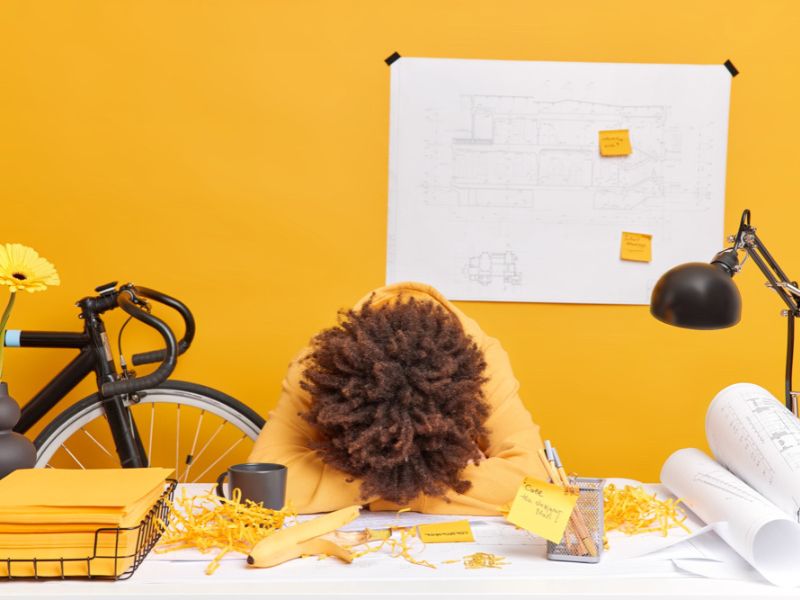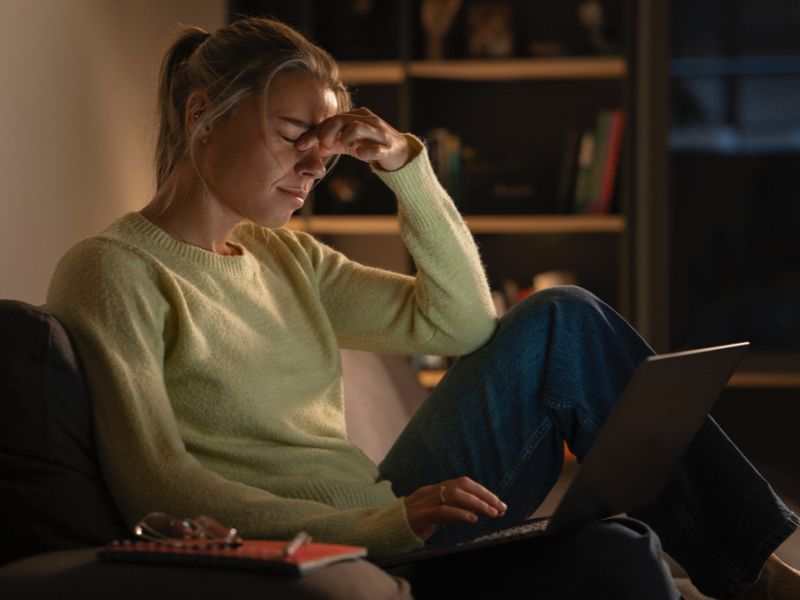By Dr. Christine Naschberger, Professor of Human Resources at Audencia
 According to a recent survey by OnePoll, the average UK worker experiences career burnout at the age of 32.
According to a recent survey by OnePoll, the average UK worker experiences career burnout at the age of 32.
A third of respondents have felt like they just can’t go on due to stress and exhaustion at some point during their careers, and one in three respondents directly blamed the COVID-19 lockdown for their feelings of exhaustion and burnout, with reasons including teleworking (31 percent) and lack of social contacts (27 percent).
These statistics draw on data collected over the summer – a time when people were more optimistic because of the holidays and the good weather. But with many European countries now entering new Autumn lockdowns combined with colder weather and less sunlight, there may be catastrophic consequences on the physical and mental health of people.
Neuroscientists have reported on the harmful consequences that the lack of social and physical contacts, loss of freedom and high levels of uncertainty might have on the human brain. Severe uncertainty generates stress hormones, causing physical, emotional and even existential anxiety. Psychosocial risks such as stress, burnout, harassment and bullying, depression, and obsessive-compulsive disorders (OCD) are on the rise, both at home and in the workplace.
The pandemic has accentuated existing fragilities and inequalities all over the world. Women in particular are more likely to experience adverse consequences as a result of the pandemic, including layoffs, career stagnation or demotion.
According to McKinsey’s “Women in the Workplace 2020” report, American women have been so negatively impacted by the pandemic that it could set them back half a decade. There has never been so many women on the point of exhaustion and burnout. The report shows that senior female executives are significantly more likely than their male counterparts to feel burnt out, under pressure to work more, and as though they have to be ‘always on’. They are 1.5 more likely than male colleagues to think about downshifting their role or leaving their job as a result of COVID-19, with almost three in four women giving burnout as the reason. These results are more than alarming, not only in terms of gender equality but also women’s health.
Suicide statistics often fail to include burnout-related suicides, and they have very little media coverage, probably because it is such a taboo subject in our ‘performance’ society. On the morning of 24 June this year, a 47 years old female employee of a pharmaceutical company jumped to her death from her workplace. She had recently returned to work after the lockdown suffering from burnout and worked in a difficult department. How can we avoid such tragedy? As a female employee, how can we step up in our own leadership to help reverse harmful patterns? And what can companies and employers do to help?
How to step up in with our own leadership to reserve the patterns?
Before reflecting on how to reverse the patterns, we need to be aware of what they are.
Firstly, we need first to get rid of the image of our female employees as superwomen. In our society, being a ‘winner’ is an ideal associated with superior performance. The syndrome of the ‘diligent honeybee’ sticks to women and is a perfectionist expectation that is very unhelpful.
Secondly, each of us need to maintain a healthy work-life balance and be aware that our wellbeing is in our own hands.
Thirdly, we should value more highly than ever the benefits of playing sports and other physical activities, especially during this second November lockdown, when Seasonal Affective Disorder (SAD) is usually so prevalent due to the lack of light. Sports and physical activities are essential for our psychological well-being. When we move, we activate muscles and when a muscle contracts it releases proteins called myokines. Exercise-induced myokines are essential for cell development, including neurons in the brain and their circuits. This improves neuroplasticity, which is vital for our cognitive abilities. In these difficult times when morale is low because of the weather, lockdown, personal difficulties, anxiety, depression, hypersomnia, chronic fatigue, or even burnout – sports and physical activities can help us to cope.
How can companies protect (female) employees from burnout?
There are many articles already looking at how organisations can be proactive in helping to preserve the physical and mental health of their employees. I would like to highlight the investment in training & development, which I feel is crucial. Employers are responsible for providing and maintaining a healthy and safe working environment free from discrimination, harassment and stress. Raising awareness of the burnout phenomena and its signs and consequences is paramount to help identify employees who are struggling. Ideally, self-detection is the best way, and people could feel sufficiently at ease to raise the alarm themselves. Unfortunately, many studies have pointed out that sufferers often do not see their own suffering, so managers and colleagues must take steps to identify and help individuals who are at risk.
Emotional intelligence is key in today’s business world, yet normally only rationality and performance are rewarded. Showing interest in others, having empathy, asking the right questions and offering a helping hand should be just as important, particularly in these difficult times.
I came across this beautiful definition of management recently: ‘to manage, you have to love people and take interest in them. The true leader is the one who grows, by making others grow’. That says it all.
WeAreTheCity covers the latest female centric news stories from around the world, focusing on women in business, careers and current affairs. You can find all the latest gender news here.
Don’t forget, you can also follow us via our social media channels for the latest up-to-date gender news. Click to follow us on Twitter, Facebook, Instagram, and YouTube.








